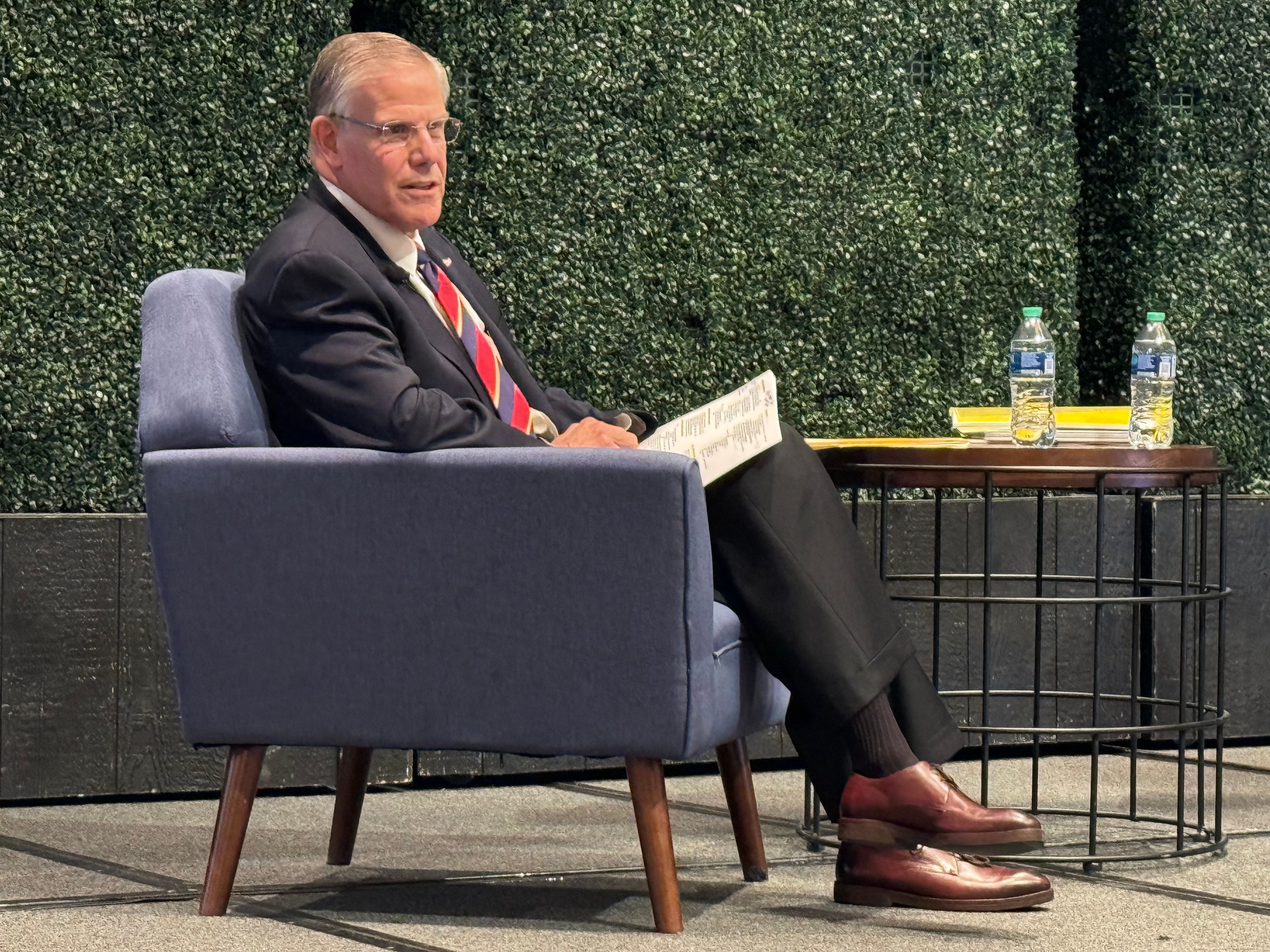Hospitals warn Trump tariffs could put ‘lives at risk’ by limiting drugs and supplies
The American Hospital Association is seeking exceptions for drugs and medical devices made in China, Mexico, and Canada. China is a key supplier of cancer drugs and protective gear.
Hospitals are urging President Trump to modify his tariff strategies to include exceptions for drugs and medical supplies, and they warn that interruptions could endanger lives.
Rick Pollack, president and CEO of the American Hospital Association, has asked President Trump to adjust his tariff policy to create exceptions for drugs and medical supplies.

Health systems have worried that hospitals and patients could suffer due to higher prices and the reduced availability of drugs, medical devices and key supplies, including masks and gloves. Trump has imposed tariffs on China, and planned to place tariffs on goods from Canada and Mexico before agreeing to a 30-day delay earlier this week.
China produces a significant amount of the raw materials for drugs and is the major source of protective gear and equipment for hospitals and health systems.
Rick Pollack, president and CEO of the American Hospital Association, wrote a letter to Trump directly asking for exemptions for drugs and medical products.
While Pollack said the hospital association supports Trump’s efforts to keep fentanyl and other illegal drugs out of the country, he wrote, “We are, however, concerned that the approach of using tariffs may inadvertently put others' lives at risk by jeopardizing the availability of vital medications and essential health care devices.”
Even with efforts to boost the domestic production of medical supplies, the U.S. relies heavily on imports for key drugs, materials to produce medications, and a host of other healthcare supplies.
“Tariffs, as well as any reaction of the countries on whom such tariffs are imposed, could reduce the availability of these life-saving medications and supplies in the U.S.,” Pollack wrote.
“U.S. providers import many cancer and cardiovascular medications, immunosuppressives, antibiotics and combination antibiotics from China,” Pollack wrote. “For many patients, even a temporary disruption in their access to these needed medications could put them at significant risk of harm, including death.”
China also supplies drugs for patients with heart disease, Pollack wrote.
The Trump administration has imposed a 10-percent tariff on goods imported by China, and Premier Inc. notes there has been no exception for healthcare supplies. Trump also has threatened tariffs of 25% on Canada and Mexico, but agreed to delay the implementation after speaking with the leaders of both countries this week.
Mark Hendrickson, director of supply chain policy for Premier Inc., told Chief Healthcare Executive® that China is a major producer of raw materials for medication, including active pharmaceutical ingredients that are essential in manufacturing drugs.
“It’s the raw materials that are the biggest pinch point, and a lot of them are coming from India and China, especially API and those natural ingredients and raw materials for pharmaceuticals,” Hendrickson said. “But the same goes true for devices. There's a lot of that coming from Asia and China specifically.”
Pollack pointed to the difficulties of any interruptions in the supplies of pharmaceutical ingredients due to tariffs on China.
“The U.S. gets nearly 30% of its APls from China, meaning that these tariffs may also limit the availability of U.S. drug manufacturers to produce critical drugs here in the U.S.,” Pollack wrote.
China produces many medical devices hospitals use on a daily basis, such as blood pressure cuffs, sterile drapes, anesthesia instruments, needles and syringes, and pulse oximeters, among others.
Most of the protective gear used by healthcare workers is made in China, including most of the N95 respirators used by providers. Pollack adds that 94% of the plastic gloves and two-thirds of non-disposable face masks come from China.
“The lack of this essential equipment will not only put patients at risk but also threaten our health care delivery personnel,” Pollack wrote.
China has responded to tariffs by putting in export limits on some raw materials, including bismuth, a mineral used in medical device imaging, Premier notes. China is responsible for 81% of the world’s bismuth production, according to Premier, and restrictions on that material could affect healthcare laboratory and imaging facilities.
Chip Kahn, president and CEO of the Federation of American Hospitals, told Chief Healthcare Executive® in an interview that “there’s a lot of nervousness” about the impact of tariffs.
“There are just certain products and supplies that are critical to hospital care that are not going to get produced in the United States,” he says, adding, “We have to have a supply chain that goes to Asia.”
Kyle MacKinnon, senior director of operational excellence for Premier Inc., said he had heard some anecdotal reports of hospitals and healthcare organizations stocking up on some supplies late last year, in anticipation of tariffs leading to higher prices and disruptions.
But he says hospitals and providers can only buy and store so many supplies.
“Hospitals often struggle with just capacity in warehousing,” he said. “They also don't have the capital to have the luxury of a stockpile of critical products, nor the time or resources to identify which ones are more critical than the others that I might need on hand. It's a very complex problem to solve when you're trying to account for burn rates of inventory and shelf life and cost.”
While tariffs in Mexico and Canada are on hold, at least for now, hospitals and health systems could see disruptions if they take effect.
Mexico receives raw materials from suppliers for healthcare and other industries, and some products are often put together in the country before heading to the U.S., Hendrickson says.
Telehealth faces a looming deadline in Washington | Healthy Bottom Line podcast
February 12th 2025Once again, the clock is ticking on waivers for telemedicine and hospital-at-home programs. Kyle Zebley of the American Telemedicine Association talks about the push on Congress and the White House.